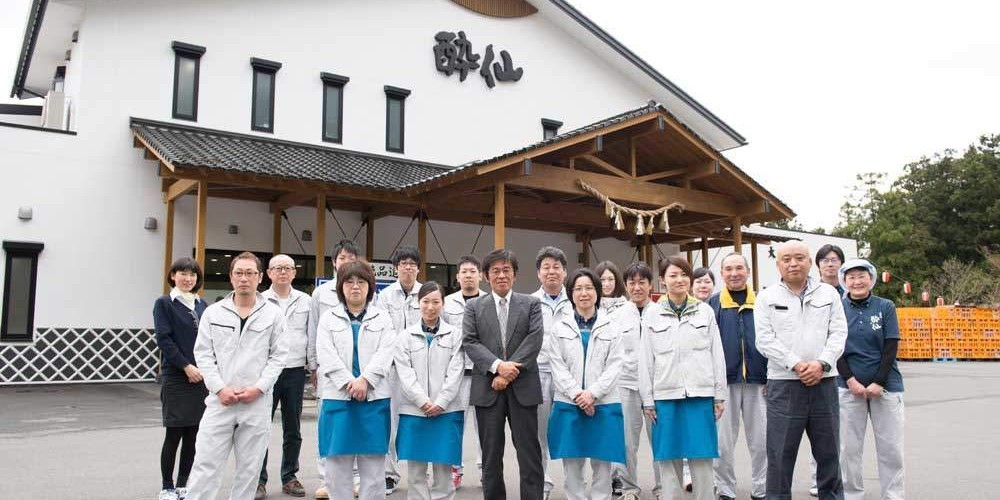Everyone is familiar with the destruction that the tsunami of March 11th, 2011 caused along the northeastern coast of Japan. Rikuzentakata was one of the harder hit cities, with most of the urban infrastructure completely washed away. Among the devastation was the city’s renowned sake brewery, Suisen Shuzo. In addition to utter loss of the brewery, seven employees perished in the disaster. But in an indomitable spirit shown by so many communities across the Tohoku region, this brewery rose from the wreckage, providing hope to the city and smiles to its many fans. Those fans are about to grow in number.
As Japanese media outlet Jijicom reports, Suisen will begin selling a new sake line, called Kibô, in California in September and New York in October. Meaning “hope” in Japanese, Kibô is a junmai and will be available in 180ml cans for $6 to $7. As Suisen’s sales director Wada Hiroyuki explains, after having received so much support from American volunteer groups after the disaster, “We wanted to convey the message that we are strong again.” To underpin that message, the can features an image of the city’s lone coastal pine tree that initially survived the tsunami and became a symbol of hope.
Suisen finished rebuilding its new brewery in August of 2012 and jumped back into business. But with the consumption tax rate in Japan having jumped from 5% to 8%, creating uncertainty across industries about how this would affect consumer spending, the brewery began to look at expanding its export program. Through an introduction, they connected with SakeOne in Oregon. Regional sales manager Fukuda Masahiro commented, “They lost just about everything, but it’s encouraging to see that they didn’t lose hope.”
As many Sake Today readers know, exports of sake have surged to record levels this year. Consumers in America will likely welcome a new product like this, while Suisen will hopefully see notable benefits to its bottom line. Incidentally, Sake Today publisher Ry Beville was in Rikuzentakata a few days after the disaster struck, interpreting for news teams before shifting his time and energies to relief work. Beville notes, “Many in the city lamented the loss of the brewery and had hoped it would rebuild. It was one of those unique businesses that helped define Rikuzentakata’s character. That the brewery has not only reopened but may just thrive will be a source of hope and strength for the many thousands of people in the city that lost everything.” We hope you try a can at least for that reason.






